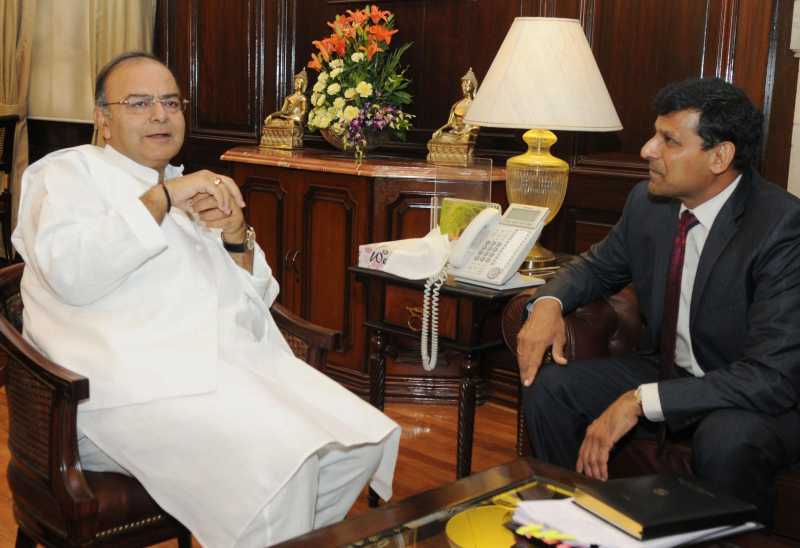The Reserve Bank of India (RBI), as expected, left key interest rates unchanged in its third bi-monthly monetary policy review Tuesday and said near-term tightening is not expected if inflation continues to ease.

“Reserve Bank will continue to monitor inflation developments closely, and remains committed to the disinflationary path of taking Consumer Price Index (CPI) inflation to 8 per cent by January 2015 and 6 per cent by January 2016,” Governor Rajan said in his policy statement.
“While inflation at around 8 per cent in early 2015 seems likely, it is critical that the disinflationary process is sustained over the medium-term.”
The repo rate, or the interest that banks pay when they borrow money from the RBI to meet their short-term fund requirements, has been left unchanged at 8 percent.
The reverse repo rate, or the interest that the RBI pays to commercial banks when they park their surplus short-term funds with the central bank, has been adjusted to 7 percent.
The Cash Reserve Ratio (CRR) is left unchanged at 4 percent. The marginal standing facility rate and the Bank Rate is also kept unchanged at 9 percent.
The statutory liquidity ratio (SLR), the mandatory amount of bonds lenders must keep with the RBI, was cut by 0.5 percent to 22.0 percent of their net demand and time liabilities (NDTL) with effect from August 9, 2014.
The status quo in key policy rates mean the equated monthly installments (EMIs) on home, auto and other loans would remain unchanged as these rates determine the lending and borrowing rates of commercial banks.
The central bank’s action is on the expected lines as most analysts predicted a status quo, considering the macro-economic situation and current data.
“There are upside risks in the form of the pass-through of administered price increases, continuing uncertainty over monsoon conditions and their impact on food production, possibly higher oil prices stemming from geo-political concerns and exchange rate movement, and strengthening growth in the face of continuing supply constraint,” the policy statement said.
Data released earlier by the Central Statistics Office (CSO), showed that retail inflation based on Consumer Price Index (CPI) declined to 7.31 percent in June from 8.28 percent in the previous month.
The central and state governments are taking steps to contain the rising food prices by either directly selling edible commodities or easing grain imports.
The price of tomatos has sky-rocketed in certain areas to nearly Rs.80 a kg.